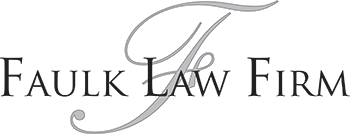OK Supreme Court Case Review: Hammer v. Oklahoma
Unless you have been living under a rock, you know that there has been significant upheaval in the law as a result of the U.S, Supreme Court ruling in McGirt v. Oklahoma. McGirt had a significant effect on how criminal cases involving Native Americans on Indian land were prosecuted. While that ruling has been limited a little bit by subsequent cases, many parties have tried to extend the holding in McGirt outside of the criminal law field, to other fields of law. Further complicating family matters, is the Indian Child Welfare Act (ICWA), which gives substantial rights to parents and children of Indian descent as it applies to family law cases.
In Hammer v. Oklahoma, two children were placed in DHS custody, and all parties agreed ICWA applied. The children were adjudicated deprived and the father in this matter (Anthony Hammer), stipulated (or agreed) the children were deprived and did not contest jurisdiction. after many months, there was a plan for adoption for the children, and the father voluntarily relinquished his parental rights, and his parental rights were terminated.
After the McGirt decision, father filed a motion to vacate pro se (on his own, without an attorney) claiming there was no jurisdiction over the children as they were Indian children residing in Indian land at the time of the proceedings. The district court denied his motion as untimely, and father appealed.
The OK Supreme Court upheld the district court’s denial using what is known as a “procedural trap” which does not reach the merits of the underlying case. Essentially the Court said that he did not appeal in the appropriate way and include the appropriate information in which the Court could reach the underlying issues.
This is a great example of why it is critical you hire an experienced attorney to represent you in your case, whatever it may be. While the Court potentially could have found a way to uphold the underlying case, he had no chance if he didn’t follow the extremely complicated rules.
Call Faulk Law Firm at (580) 249-9100 for always FREE CONSULTATIONS.

